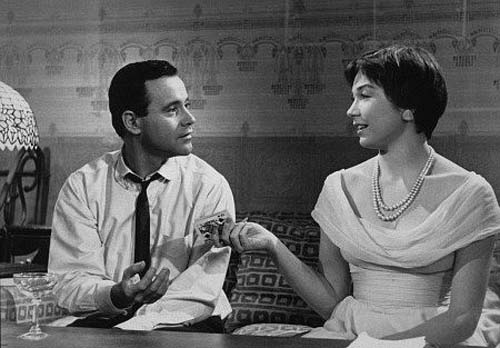I watched the film again during grad school and analyzed the use of light and dark in various scenes as part of a comparison paper for my film class. Watching the film that time I realized just how closely the directors, Jerome Robbins and Robert Wise, used the imagery in the play in the film. Unfortunately, I have never had a chance to see a live production of the musical, which is how the creators intended the story to be seen, so I don't know how closely what Robbins and Wise did mirrors the Broadway production.
During this viewing, the blatant prejudice on the part of the police stood out to me the most. That may be due to what's currently happening in our country, with Ferguson and other stories of police prejudice. In West Side Story, Detective Schrank outright says that he hates the Puerto Ricans and wants them gone. He even offers to help the Jets in their fight against the Sharks. His prejudice reflects what was happening in New York at that time, how immigrants were hated and blamed for problems, which unfortunately happens today in our country. The song "America" best captures this sentiment (and is one of my favorites from the musical):
I'd like to say that our society has improved since 1961, that the Civil Rights Movement made a substantial difference in how people are treated, but I'm not sure that's the case. It seems like every step we take forward in equal rights, we have people who fight this progress and pass laws at the local level (like Indiana's religious freedom law) that actually allow people to mistreat those who are different from them. If only we could learn from stories like Romeo and Juliet and West Side Story that hate is not the answer; hate will only bring us down and ruin our lives.
